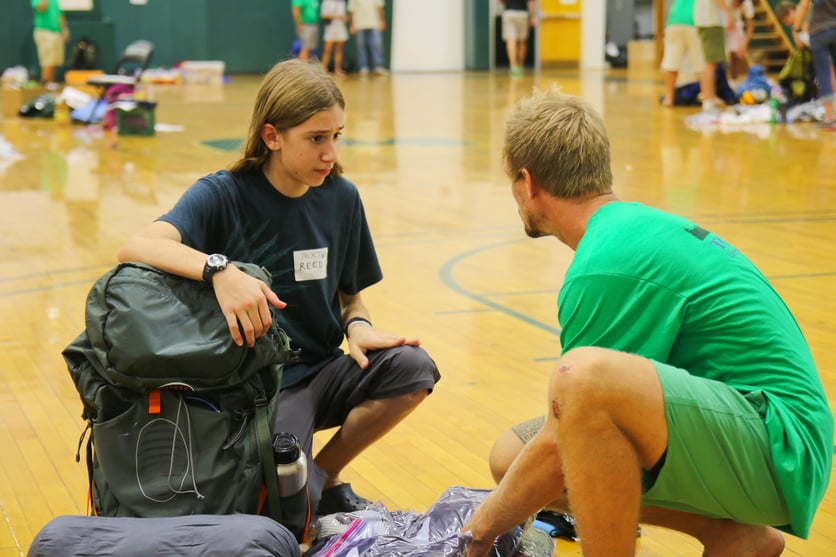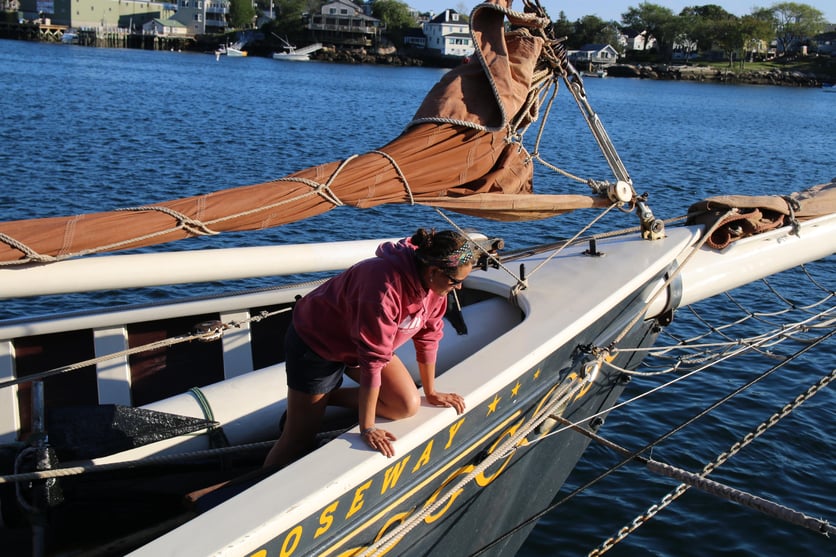We have crossed the midpoint of summer break, and begin to shift our attention to the school year ahead. With a new year comes the opportunity to educate new parents (and returning) on how to help their child get the most out of their Proctor journey. We published a blog post on this same topic last summer (Being a Proctor Parent: Empowering Independence) but wanted to take another look at how parents can best support their son or daughter’s boarding school experience.

Julie Lythcott-Hames spoke at this week’s Blackbaud K-12 User Conference in Boston, sharing her thoughts on parenting based on her book, Raising an Adult. Through her powerful keynote rooted in her own experience raising her two children, Lythcott-Hames implored all the educators in the room to rethink their role as both parents and teachers. She acknowledged that parental over-involvement in their children’s lives stems from the best of intentions; they desperately want to help their children succeed and fear if they don’t engage directly with every step of their child’s educational development, advocating and ensuring their son or daughter has the best possible chance to find ‘success’. Too often, however, this race to success has long-term negative impacts on our children’s mental and physical well-being, undermining our original goals of making their lives ‘better’.

Lythcott-Hames traces the trend of overparenting back to the early 1980s when the supervised playdate was born (along with the eruption of stranger danger in the media and implementation of life-saving safety precautions like bike helmets, seat belts and car seats) infiltrated parents' lives. As parents began to think more and more about how to shape a safe, healthy childhood for their offspring, an unintentional byproduct emerged: the decline of self-advocacy skills in our children.
Lythcott-Hames noted, “If over parenting means we steal independence from our children, then we shouldn’t do it.” She continued, “We treat our kids like bonsai trees. We prune and clip and shape to make sure they are just right for college admissions. But this sacrifices their long term ability to grow. They no longer have time to play freely. There is no room in the afternoons. Kids emerge from childhood as a perfect replica of an adult without the ability to function as one.”

As parents of three young children, my wife and I find ourselves inadvertently falling into this societal trap of overparenting. Are we giving them the experiences they need? Are we depriving them of future success by not signing them up for the U9 travel soccer team? Are we handholding them through their homework each night? As parents, we feel good about the short-term successes that result from our over-involvement in our children’s lives because it validates our efficacy as parents. But we must put aside these short-term feedback mechanisms, and instead focus on their long-term development of life skills that will allow them to enter adulthood with confidence, self-advocacy skills, and a sense of adventure.
Today's kids can tell you what they've done, what they’ve achieved, the courses they’ve taken and the accolades they’ve achieved, but they struggle to tell you who they are. Proctor’s gift to each family is that our educational model provides students the time, space, and skills necessary to figure out who they are; not who we want them to be, or who their parents want them to be. It's a gift not all schools are willing to give.

During the admission process, parents rightfully ask about Proctor’s value proposition (a boarding school education is a significant investment for each family). They want to know about specific outcomes, like competitiveness of college placement for example, as tangible measures of return on their investment. We share our college matriculation information with parents, but emphasize Proctor’s real value proposition is that we teach students how to be independent, self advocates who understand themselves as learners. We believe Proctor’s real return on investment occurs in the long-run. It is value that pays dividends for a child's entire lifetime, and one we see face-to-face during every alumni reunion.
Proctor’s value proposition can be hard for some parents to put in perspective because it runs contrary to the short-term feedback mechanisms they've been trained to seek throughout the first fourteen years of their child’s life. Self-advocacy skills are not quantitative in nature, and may not show up on a student’s report card right away. Proctor’s model requires risking failure (a word we have all come to fear for our children's sake) as students explore new passions and challenge themselves in new ways. We believe that when students are failure deprived they become risk deprived and consequently experience deprived. Our goal is to shift this culture with our families; to reshape expectations and to pause the instincts to over-parent that have crept into our lives.

Proctor's educational model requires significant trust as parents empower us to guide their child’s journey toward adulthood. Lythcott-Hames ended her keynote with these words of wisdom, “While are busy constructing our children’s lives, we are depriving them of the ability to ‘be’, and undermining their ability to develop self-efficacy, an essential process of becoming an adult.” Our goal is to help our students ‘be’, and we trust our parents to fully embrace this journey!






